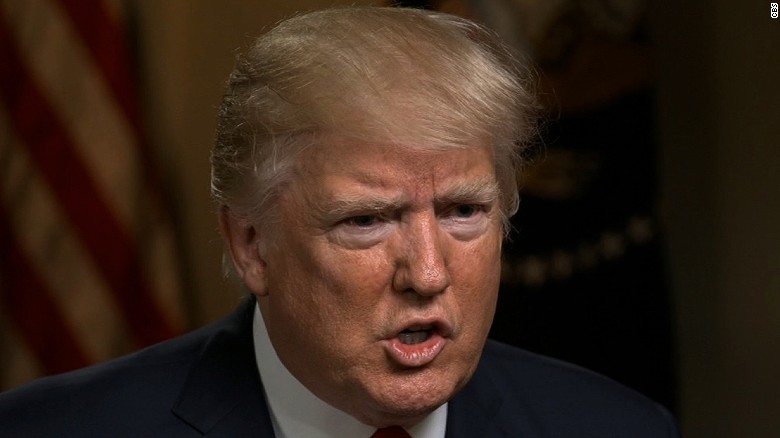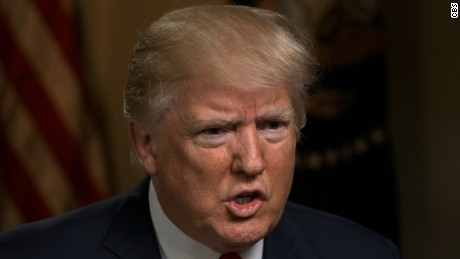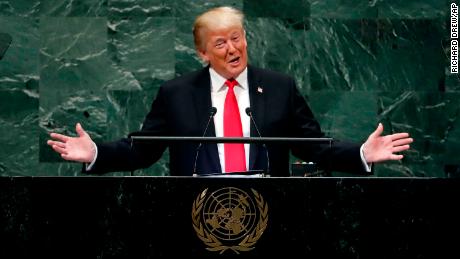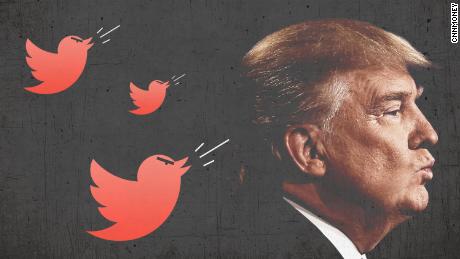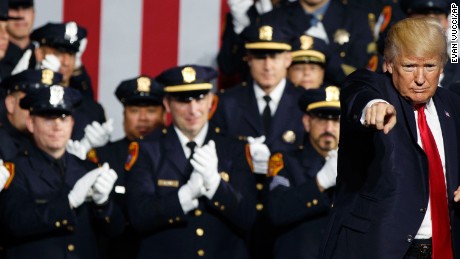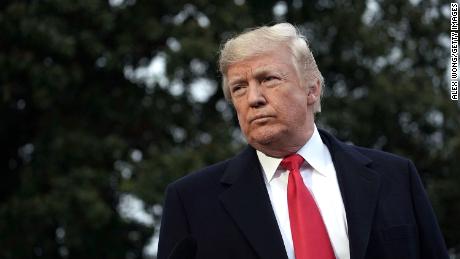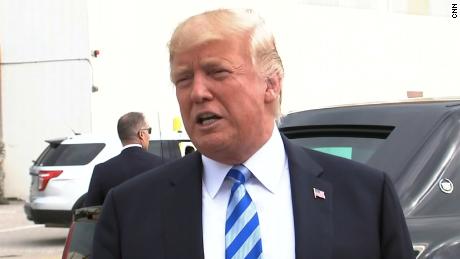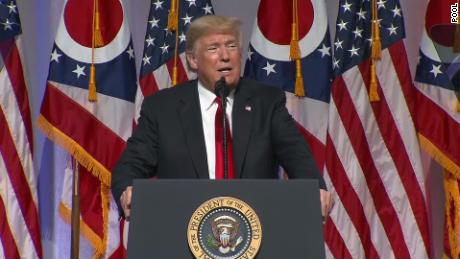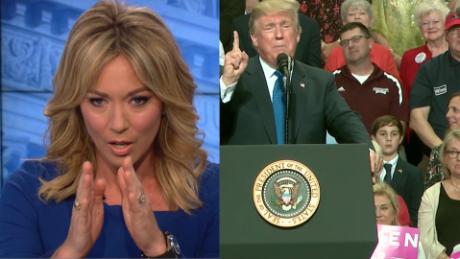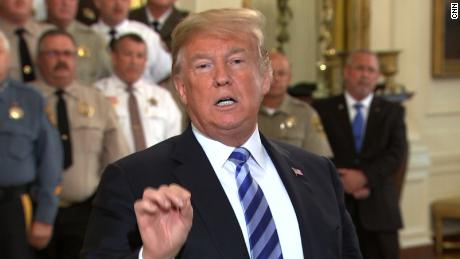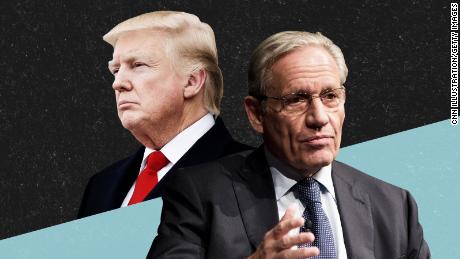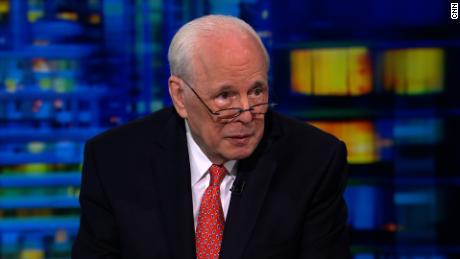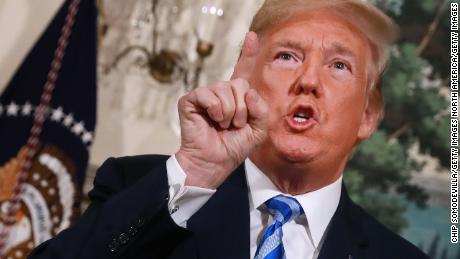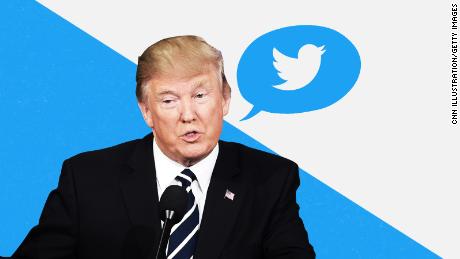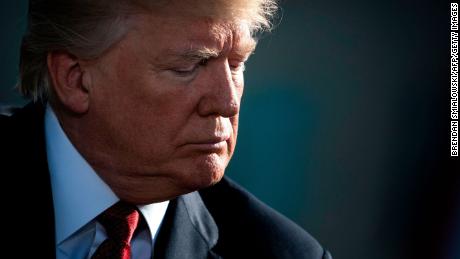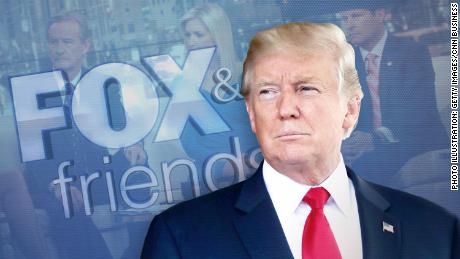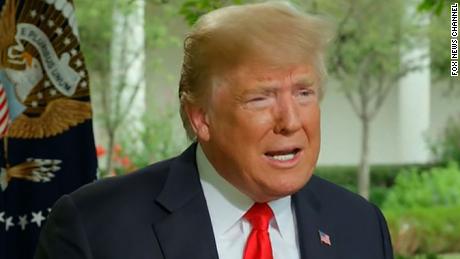(CNN)It's only natural that the War of 1812 should be on President Donald Trump's mind. It was during that conflict between an infant United States and its former colonial master Great Britain that Francis Scott Key wrote the poem that would become the National Anthem -- on September 13, 1814.
Trump loves the National Anthem and has made insisting that people respect it by standing a major focus of his Twitter feed over the past year.
Most Americans might also know about the War of 1812 for the Battle of New Orleans, which made a hero of Andrew Jackson, who would become Trump's favorite President.
Or, perhaps more so, for the famous burning of Washington, including the Capitol and the White House, by the British, which occurred just a few weeks before Key wrote his poem about Fort McHenry.
Trump currently lives in the White House, where, according to a C-SPAN account online, you can still see burn marks from when the British troops stormed in, finished the meal that had been prepared for President James Madison, his wife, Dolley, and 40 guests before they fled the city.
And it's from the White House, with its burn marks, that the President apparently held a very contentious phone call with Canadian Prime Minister Justin Trudeau about tariffs Trump is imposing on the US neighbor to the north.
According to reporting from CNN's Jim Acosta and Paula Newton, Trump at one point quipped to Trudeau, "Didn't you guys burn down the White House?" referring to the War of 1812.
This is a prime example of history according to Trump.
Yes, there's a kernel of truth here, since a lot of Canadians seem to think it was Canadians who burned the White House. Also, the British burned Washington after American troops burned government buildings in what's now Toronto.
The war was fought in large part over Canada.
All true!
But it was British troops who burned Washington.
Canada did not exist as an autonomous country for years. It didn't gain full independence until the 1900s.
It wasn't the Canadian Embassy in the US that had to apologize in 2014 for a tweet making fun of the burning of the White House. It was the UK Embassy.
It was British Prime Minister David Cameron who traded jokes about it during a visit to the White House to meet with then-President Barack Obama.
The White House Historical Association has a history of the burning of Washington on its website. It very clearly mentions British troops throughout.
Was Canada a colony at the time? Yes. Did the War of 1812 involve Canada? Yes. But is it the generally accepted history that Canadians burned the White House? It is not.
The other interesting element here is that the US declared war on Britain in the War of 1812 over trade disputes. Trump's phone call with Trudeau had to do with, yep, trade disputes, and the imposition of Trump's tariffs, which he says are for US security, but which Trudeau, flummoxed, has said actually jeopardize US security by driving a wedge into what's been a family-style North American relationship for generations.
Trump had terse calls with the leaders of both the UK and France about his trade policies in recent days too.
It's not clear, however, if he made any history jokes to French President Emmanuel Macron or British Prime Minister Theresa May.
You enter this type of historical vortex with any number of Trump historical statements. CNN's Gregory Krieg and Juana Summers have each examined some of his comments about Andrew Jackson, about Frederick Douglass, about Napoleon, about Nazis in Stalingrad, about Harry Truman, about Richard Nixon and more.
They're worth the read.
Update: While Canadians celebrate their independence day as July 1, 1867, when Canada became a self-governing dominion of the British empire, full independence from Britain came gradually, with important moments occurring when Canada entered World War I defending Britain, with the passage of its Declaration of Independence, the Statute of Westminster in 1931 and and as late as 1982 when the Canada Act, among other things, made it impossible for the British Parliament to amend Canada's constitution.

